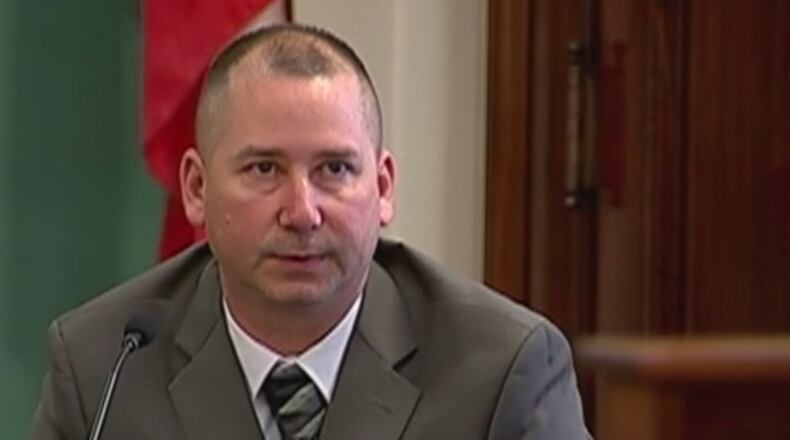He was convicted on one count of sexual battery and three counts of gross sexual imposition in December 2019 and was sentenced to prison in May, 2020. However, that sentence was stayed due to the coronavirus pandemic, and Ward was allowed to remain out until his appeal was decided.
A motion to impose sentence was filed in the Preble County Common Pleas Court case and a hearing is set for Nov. 29 at 2 p.m.
In its ruling, the appeals court says that Ward was accused of touching a 15-year-old girl who was having a sleepover with Ward’s daughter, and he was accused of sexual misconduct against women he pulled over while on patrol as a trooper.
“Ward was indicted on several counts related to the sexual misconduct. Ward pled not guilty, waived his right to a jury trial, and the matter proceeded to a four-day bench trial,” the ruling says. “The trial court found Ward guilty of one count of sexual battery and three counts of gross sexual imposition. The trial court sentenced Ward to an aggregate sentence of three years in prison and designated him a Tier III sex offender.”
Ward argued in the appeals court that the state withheld evidence from the defense when it did not produce GPS records that showed the location of Ward’s patrol cruiser during the alleged sexual offenses, the court document says. However, the court disagreed.
“The GPS records in question showed the location of Ward’s patrol cruiser at various times. It is undisputed that the documents showing the coordinates were public record and thus available to Ward at any point prior to trial. In fact, Ward asserted in his motion for a new trial that he had made a public records request for records of his GPS coordinates that he now claims were suppressed by the state,” the court said.
It also says that the state produced 568 pages of GPS records as part of its discovery. And the court said that if Ward did not report an incident, his cruiser’s location would not have been recorded.
Ward also argued that his conviction was “against the manifest weight of the evidence.” However, the appeals court ruled again disagreed.
“After reviewing the record and weighing the evidence with all related reasonable inferences, we find that the trial court did not clearly lose its way or create such a manifest miscarriage of justice that Ward’s convictions must be reversed and a new trial ordered,” the appeals court wrote.
About the Author

